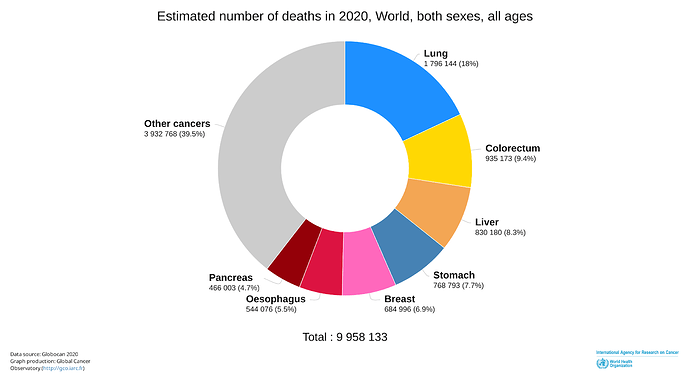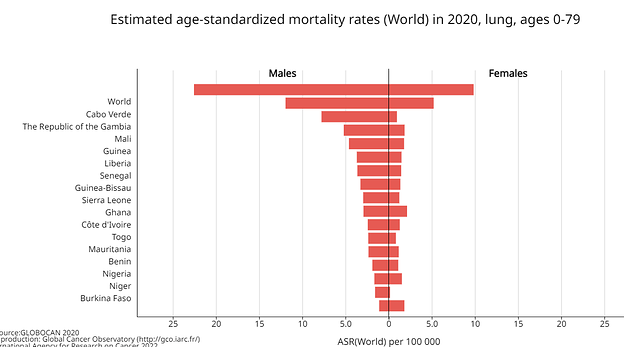Lung cancer is the abnormal growth and division of cells in the lungs. It is the leading cause of cancer deaths worldwide and accounts for 11.4% of all new cancers (Sung, 2021). In 2020, about 9,958,133 deaths were caused by cancer globally in both sexes, out of which 16% (1,796,144) were attributable to lung cancer.
In Nigeria, with an incidence of 1.4%, lung cancer ranked 14th overall on the annual newly diagnosed cancer cases (Globocan, 2020).
Figure 1: Lung cancer mortality rate in West Africa in 2020 (Source: GCO, 2020)
In 2020, the mortality rate of lung cancer for Nigerian men was 1.7 deaths per 100,000 population (fig 1), this was higher than the mortality rate for Nigerian women (1.5 deaths per 100,000 population) and evidence enough to conclude that men are more likely to die from lung cancer than women.
Factors associated with increased susceptibility to lung cancer include, but are not limited to tobacco, exposure to outdoor air pollution, unhealthy diets, and pre-existing lung disease. Other factors specific to Nigeria include some socio-cultural practices, language barriers, and the stigmatization attached to the disease, all hindering knowledge and awareness (Lubuzo et al., 2020). It has been observed that the decrease in lung cancer mortality in developed countries can be attributed to the increase in their awareness of the harmful effects of smoking and other predisposing factors, as well as the improved method of treatment of the disease (Sankaranarayanan et al., 2011).
What are the various interventions you think can help reduce lung cancer incidence?

